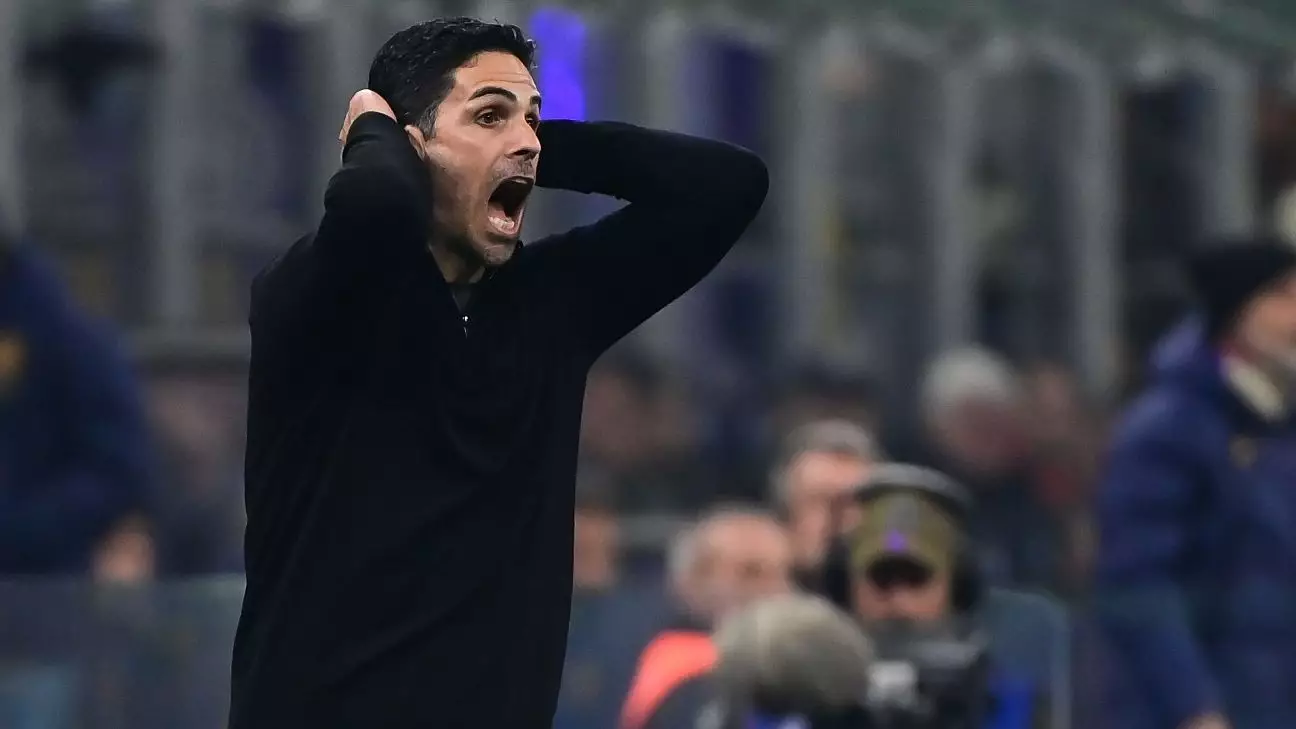Arsenal faced a challenging encounter in their Champions League campaign, succumbing to a narrow 1-0 defeat against Inter Milan at the iconic Stadio San Siro. While the scoreboard reflected a loss, head coach Mikel Arteta’s post-match comments unveiled a complex blend of frustration and pride. He passionately expressed his belief that the Gunners deserved a penalty, citing a handball incident that he deemed a “1000 percent penalty,” underscoring the heavy emotional toll these tight contests can take on coaches and players alike.
The incident that sparked the ire of Arteta involved Mikel Merino, who was penalized for a handball during a pivotal moment in the match. Arteta argued that the decision was out of line, pointing out that the ball’s proximity made Merino’s reaction practically unavoidable. He was particularly incensed by what he perceived to be inconsistency in officiating, especially following a previous encounter where a similar foul was not punished. His comments reflected a broader concern about the subjective nature of refereeing decisions in high-stakes matches, calling into question how such critical moments can dictate the trajectory of a team’s aspirations in the prestigious tournament.
Despite the disappointing outcome, there was a silver lining for Arsenal in terms of their gameplay. Arteta noted that the team’s performance marked a significant improvement from previous years in European competitions. After a turbulent start, during which Inter’s Denzel Dumfries nearly put the home side ahead by striking the crossbar, Arsenal gradually took control of the possession. However, dominating the ball didn’t translate into goal-scoring opportunities, as they failed to break through Inter’s defense or find a solution against goalkeeper Yann Sommer’s formidable presence.
This match not only added to Arsenal’s Champions League woes—leaving them languishing in 12th place—but also came on the heels of three losses in six games across all competitions. Yet Arteta’s resolve remained unshaken as he addressed the need for resilience ahead of their Premier League fixture against Chelsea. He maintained that despite the heartbreak, the performance against Inter was one of their best in recent history. Such statements are indicative of a coach trying to instill a mindset of confidence and perseverance in a young squad, one that is often faced with harsh lessons in the world of elite football.
While Arsenal’s campaign has faced its share of setbacks, including key decisions that baffle their coaching staff, Arteta’s refusal to dwell on negativity speaks volumes about his leadership philosophy. It’s clear that he sees greater potential in his squad, emphasizing growth despite the immediate disappointments. As Arsenal continues to navigate their European aspirations, the focus will be on turning promising performances into tangible results, a challenge that Arteta and his players must tackle head-on. The journey is far from over, and with grit and determination, they may yet transform frustration into success.

